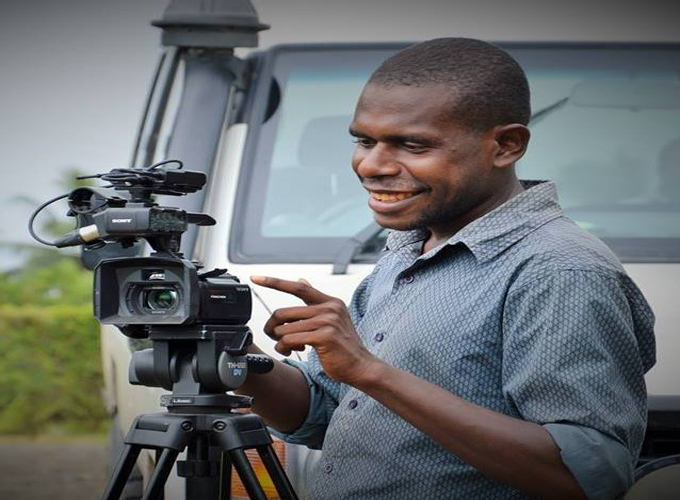By Sylvester Gawi in Lae
The greatest challenge facing journalism in Papua New Guinea today is that there is no freedom of the press. Journalists need courage to speak and write the truth, and use the right medium to express their views.
Almost everything that is printed in the press is scrutinised and controlled by the government or an “agent” in the newsroom – most often by the editors.
Papua New Guinean journalists face a much bigger challenge as they have to write according to what their editors can publish, or they get sacked for insubordination.
In PNG, the “kaikai man” is referred to as someone who writes propaganda in return for favour. This syndrome is so deeply rooted that you cannot get away from it.
Even the reporter with full knowledge that someone is corrupt or lying will continue to write good things about the subject. Glorifying parliamentarians and government bureaucrats is common in PNG.
So how do you expect a graduate journalist to deviate from this trend? Years after years, the trend continues. The what, when, where, why and how questions have gone into the bunker. No journalists have got the courage to ask these questions anymore.
Journalists in PNG have got assaulted and some taken to court. This is not because they did the wrong thing, it is all because they are standing up for the truth – and, of course,the truth hurts.
Media suppressed
The media has been suppressed by the very people that the media is supposed to be keeping in check and balance.
So where does democracy and media freedom in Papua New Guinea stand?
Social media is the new technology that is now being accessed by almost 80 percent of the Papua New Guinean population. It is the most powerful tool to reach millions of people in PNG other than the mainstream media.
Facebook has taken over the news media role in PNG with almost all news, photos and half-baked stories being published by anybody. Social media news can be inaccurate at times but it seems to be well balanced and expressed more freely than in the mainstream.
Journalists are the mouthpiece for the people. However, continuous social media outbursts have somewhat highlighted poor journalism in terms of investigative reporting.
Let me say it again, it has always been the editors and news bosses who have done the final editing done to the news pieces.
The PNG government has passed laws on cybercrime but how soon these laws can be implemented for the good of our society is yet to become clear.
‘Human’ view
The other challenge is on media outlets to use social media platforms to disseminate news and information.
Social media policies passed by certain media outlets also encourages journalists to have a “human” view on issues and posting them on social media.
I have my personal blog titled My Land – Graun Blong Mi, which I use as an extension to writing feature stories about people and lifestyle in Papua New Guinea.
All in all, media in Papua New Guinea cannot be defined as free. We are still facing a lot of challenges to find our worth in this society of ours.
- In this week’s Reporters Without Borders media freedom report, Papua New Guinea dropped two places to 53rd in the World Press Freedom Index.
Sylvester Gawi is an independent journalist living and working in Papua New Guinea. He blogs at Graun Blong Mi – My Land.















































[…] This article is also on the Asia Pacific Report […]
Comments are closed.